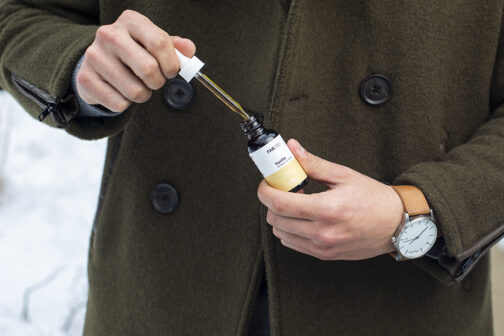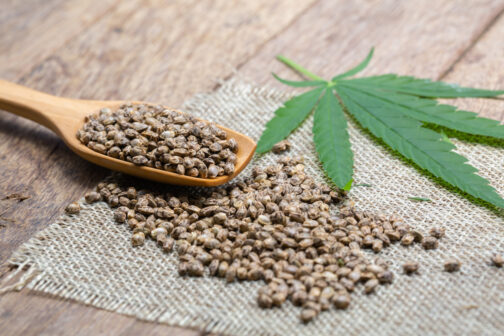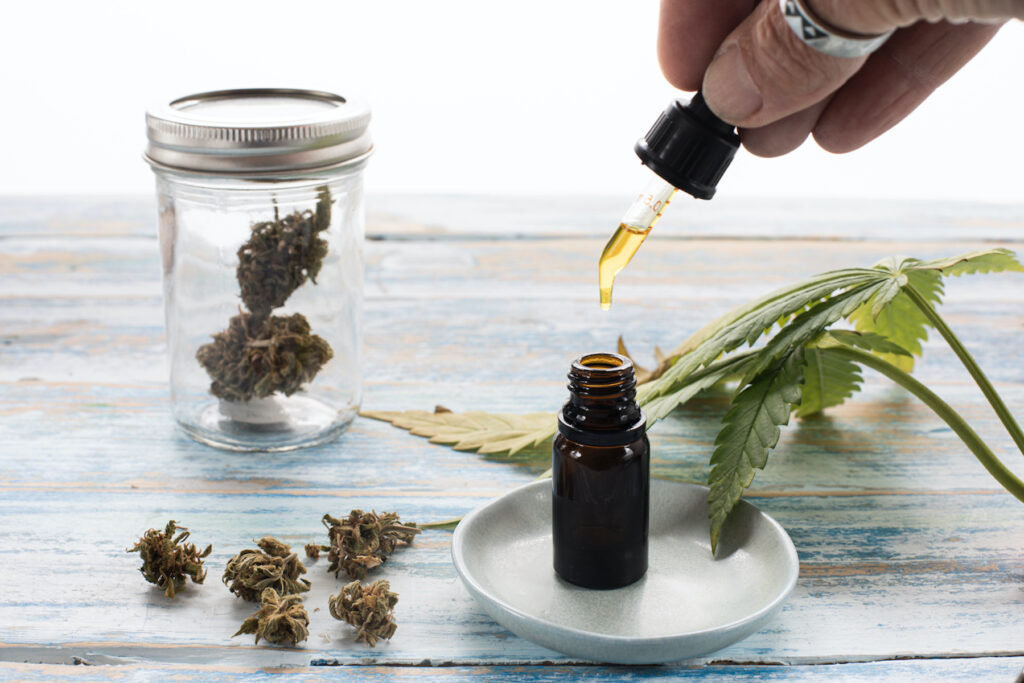CBD Oil vs Hemp Oil: What’s the Difference?
Ever since the passing of the 2018 Farm Bill, the popularity of CBD products has grown by leaps and bounds. Sadly, a lot of people who are new to CBD don’t take the time to do the necessary research before going out to buy CBD oil. What results is a lot of confusion over hemp oil vs CBD oil. In order to dispel some of the ensuing confusion, we’re giving our readers a brief and informal primer on the main differences between the two.
What is Hemp Oil?
Hemp oil is also known as hemp seed oil. This type of hemp extract has been made from industrial hemp seeds that came from the cannabis Sativa plant. When hemp oil is extracted, the hemp seeds are pressed and either bottled or further processed and refined before they are bottled. Hemp oil is a wonderful healthcare product because it is high in omega-3 fatty acids, protein, and vitamin E.
What is CBD Oil?
CBD is also known as cannabidiol. It is extracted from the hemp plant and then a carrier oil like MCT oil is added so that our bodies can better absorb the CBD. CBD comes directly from the cannabis Sativa, or hemp, plant. However, instead of using hemp seeds, CBD is extracted from the stalks, stems, leaves, and flowers of the plant. There are many ways to extract CBD including CO2, ethanol, and olive oil. However, the CO2 extraction method produces the cleanest end product, which explains why this method is industry preferred over others. The extraction method used plays a large role in the overall quality of CBD oil.

How are Hemp Oil and CBD Oil Similar?
There are a few ways that these two oils are alike. Some of the main similarities are:
- Both are derived from the hemp (cannabis sativa) plant
- Neither will cause euphoric “high” sensations
- They are both oils
- They can both be taken internally or applied topically
What are the Main Differences Between Hemp Oil and CBD Oil?
The many differences between these two oils are both vast and striking. Some of the ways that hemp oil is different from CBD oil are:
- While hemp oil is made from the seeds of the hemp plant, CBD oil is extracted from the leaves, flowers, stems, and stalks of the hemp plant.
- Hemp oil can only come from industrial hemp, whereas CBD can be extracted from other varieties of the cannabis plant like marijuana.
- All reputable brands make third-party lab reports and COA, or certificates of analysis, available for their CBD oil products. Conversely, hemp oil typically doesn’t come with any such reports, as the Food and Drug Administration (FDA) does not regulate hemp products.
- According to the 2018 Farm Bill, CBD oil is legal to be sold and bought in the United States provided it comes from the hemp plant and contains 0.3% or less THC, or tetrahydrocannabinol. (Customers should be aware, however, that while hemp-based CBD oils are federally legal, state and local laws may vary on these products.) Since hemp oil is completely free from THC, there are no laws on the books about it.
- Some states have their own laws and regulations when it comes to CBD oil. Because hemp oil contains zero THC, there are no restrictions on it.
- Even though hemp oil is rich in vitamins and nutrients, it doesn’t contain any beneficial cannabinoids, terpenes, or phytonutrients. As such, you will not experience the benefits of the entourage effect, as you do by taking CBD oil.
- Hemp oil can be purchased just about anywhere, while CBD oil cannot.
- Many skincare brands have used hemp oil in their products for years. Even though CBD oil has grown in popularity over the years, it’s still relatively new to the beauty industry.
- Even though both hemp oil and CBD oil can be used topically or taken internally, you’re more likely to take CBD oil internally and use hemp oil topically.
Why CBD Oil Produces an Entourage Effect and Hemp Oil Doesn’t
Even though hemp seed oil has many excellent benefits associated with it, it does not produce an entourage effect like CBD oil. During the entourage effect, all of the beneficial cannabinoids in CBD oil work synergistically within the body’s cannabinoid receptors to boost up each other’s positive properties while lowering one another’s negative ones. Since the hemp plant is created from hemp seeds, it doesn’t contain any cannabinoids or terpenes. Moreover, full-spectrum hemp oils are created through the use of the entire hemp plant (flowers, leaves, stems, and stalks).
When CBD oil is extracted from the entire hemp plant, every compound that the hemp plant has to offer is captured. Therefore, both full-spectrum and broad-spectrum CBD oils contain cannabinoids, terpenes, and phytonutrients that have many health-boosting benefits. On the opposite end of that, you have hemp seed oil. Hemp seed oil does not contain any cannabinoids, terpenes, or phytonutrients. In fact, you’ll only be getting a sliver of the benefits that you’d be getting if you were taking CBD oil because if you’re only taking hemp oil, you’re missing out on the entourage effect.

What are the Benefits of Hemp Oil?
CBD oil and hemp oil can both boost overall health and wellness, though in different ways. Hemp oil is packed with healthy fats, vitamins, and minerals. Because of this, it has strong nutritional power attached to it. In fact, a study conducted in 2010 found that hemp oil has the potential to positively influence heart disease. Scientists have also conducted further studies on hemp oil’s benefits to learn more about how it may also work to improve other health issues related to the skin, immune system, and nervous system.
What are the Side Effects of Hemp Oil?
There are no known side effects of hemp seed oil on its own, however as every person’s physical makeup is unique, it is possible to have an allergy or sensitivity to just about anything. For this reason, it’s always a good idea to take your first dose of hemp seed oil with care. If you’re using a lotion or cream, just try a little bit in one small area and pay attention to how it feels over the next few hours. Similarly, if you’re adding hemp seed oil to a salad dressing or into your baking, try adding it to a small portion of your food first, so that you know if you like the taste and if your body tolerates it well.
What are the Benefits of CBD Oil?
There are many scientifically documented benefits tied to CBD oil. In fact, studies prove that CBD oil can help with many issues including:
- Pain relief, including chronic pain
- Anxiety
- Depression
- Arthritis
- Sleep and insomnia
- Neurological issues
- Epilepsy-related issues
What are the Side Effects of CBD Oil?
Although many people tolerate CBD well and enjoy its anti-inflammatory and calming effects, some may experience relatively mild side effects. These may include:
- dry mouth
- diarrhea
- reduced appetite
- drowsiness
- fatigue
CBD can also interact with some medications, so it’s a good idea to check with your doctor before starting a new regimen that includes CBD.
Why Reading Labels Matters
Since CBD oil has yet to be regulated through federal law, many subpar brands and manufacturers could use misleading labels or claims on their product packaging. If you want to avoid purchasing cheaply made hemp or CBD oil, then you should carefully and thoroughly read product labels. For example, hemp oil’s number one ingredient should always be hemp oil, while CBD oil bottles and boxes should always list cannabidiol, full-spectrum CBD, broad-spectrum CBD, hemp (not hemp seed), or phytocannabinoid-rich CBD as their top ingredient. Reputable brands care about being transparent with their customers. Therefore, based on brand reputation, verified customer reviews, third-party lab reports, and other factors, you can easily confirm that you’re getting a top-notch, high-quality, clean and effective product.

Hemp Oil vs CBD Oil: Making it Make Sense
Whether you’re trying to boost or maintain your general health and wellness or attempting to get a handle on a tough health condition like depression, anxiety, or insomnia, you can find help through either hemp seed oil or CBD oil tinctures. If you’re having a hard time deciding between hemp oil vs CBD oil, you should always take your wellness goals into consideration. Never hesitate to reach out to our primary care doctor or medical specialist if you need some extra help making that decision. Regardless of whether you’ve decided on hemp oil or CBD oil, always take the time to carefully read the product label and research the brand you want to go with.
Remember, because hemp oil is extracted only from the seeds of the hemp plant, it will not have any cannabinoids, terpenes, or other phytonutrients in it as CBD oil will. If you’re looking to alleviate a specific health issue, then CBD oil is a great option because it works with your endocannabinoid system to help bring the body back into a state of balance. Moreover, full-spectrum and broad-spectrum CBD oils create an entourage effect through the synergistic relationship of the cannabinoids in them.
Lastly, hemp oil and CBD oil can be used topically or ingested, and each will work in different ways with your unique body. Even though the spotlight has been mainly on CBD oil over recent years, the nutritional and health benefits of hemp seed oil should not be discounted. After all, hemp oil is an amazing nutritional supplement as well as a fantastic skin-smoothing topical treatment. The product you choose — hemp oil or CBD oil — will be based on your individual needs and intentions.
Signup for D Exclusive
Author






